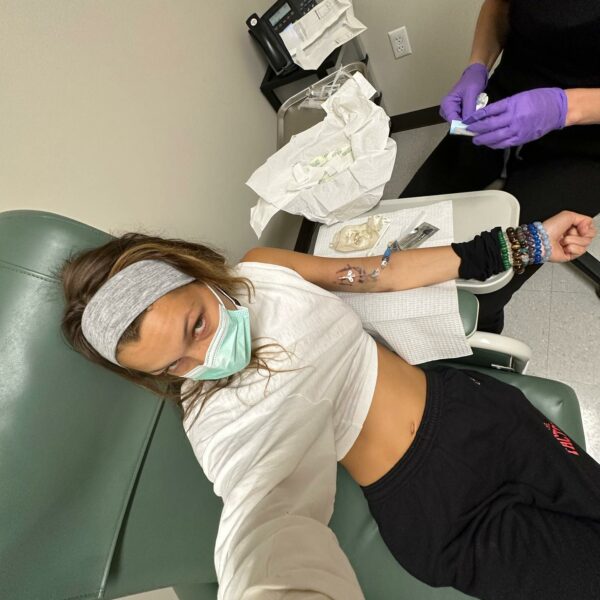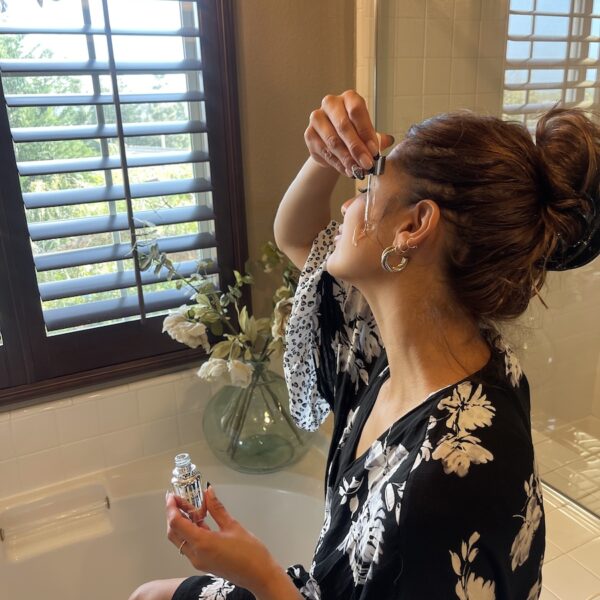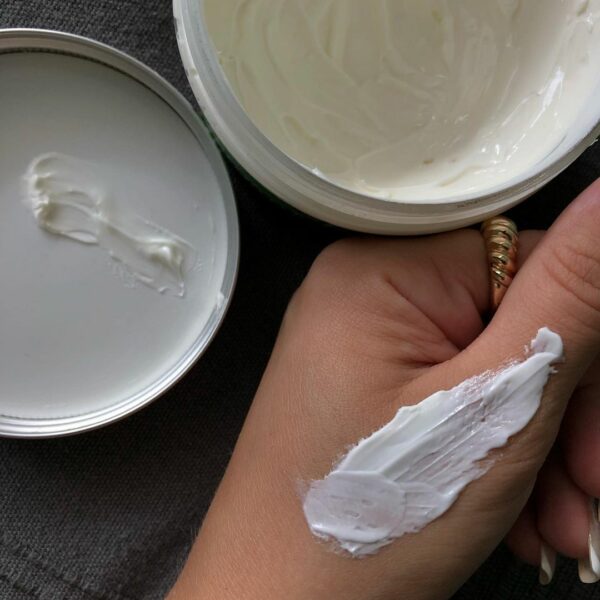The B word—bloating. It’s not cute. It’s not comfortable. And it’s definitely not fun. What causes bloat? Well first, let’s understand that technically bloating is caused by a distention of the abdomen and can be from a number of underlying possibilities. Everything from undigested food (chew, chew, chew!) to how you’re sitting (upright is best, no more meals in bed) to how much you’re talking while eating (save those FaceTime and Zoom calls for after) can affect how your body responds to, and more importantly, digests, your food.
Ahead, I’m sharing some of the top foods I recommend swapping if you’re experiencing belly bloat:
Trade out your beans and legumes for soaked quinoa.
Beans contain a specific type of protein that resists digestion until it gets to the large intestine—that’s a long way to go before they get any action. And they can definitely cause gas and bloating along the way. Try swapping them for well-rinsed and soaked (at least two hours in water, then rinse again) quinoa for a highly nutritious, protein-packed, more-digestible alternative. When you add beans back into your diet, it’s a good idea to soak them too and experiment with taking a digestive enzyme supplement beforehand.
Go easy on the raw greens and heavier on the steamed or sauteed greens.
While I’m a fan of all green vegetables, too many raw veggies (especially the heartier greens like kale, collards, and mustard greens) can be harder for your body to digest. I recommend for anyone struggling with bloat and gas to try swapping their salad greens for gently steamed or sauteed greens. And since most of us are WFH these days, this one is likely easier to accomplish in your own kitchen during the week. Bonus points for adding some raw fermented veggies or sauerkraut to help your belly break down its meal even better.
Pass on the cows and bring on the goats and sheep—yogurt, that is.
Many people can’t properly digest dairy either because they’re lactose intolerant or they’re sensitive to the proteins. If you find you’re feeling extra full after eating a bowl of yogurt or some cheese, try swapping cow milk products for goat or sheep milk ones. These alternatives are less processed and have different proteins, typically making them easier to digest than traditional cow dairy.
Cut back on La Croix and instead sip on plain water or hot tea.
We all love a good bubbly water, but the problem for easily bloated bellies is that the CO2 used to make the bubbles can go straight to your digestive tract and cause bloating. Instead, I recommend sipping on room-temperature water, warm lemon water, or tea. Even better, leave the liquids for at least an hour after mealtimes so that your digestive system can properly do its thing. Think of your belly like a fireplace—you don’t want to put out the fire while it’s digesting your salmon and baked sweet potato fries.
And my number one (non-food swap) tip for beating bloat is …
Slowly chew your food. In my 12 years as a certified wellness coach, the number one reason I find people are feeling bloated is that they aren’t chewing their food properly. Digestion begins in our mouths, and I always say your stomach doesn’t have teeth. When we don’t chew our food completely, it leaves more work for our bellies, which can result in bloating, food comas, and other not-so-pleasant feelings (and sounds!). Yes, this will likely feel funny at first and could take years of practice (I’m still working on it), but I promise this simple habit pays off.
With these swaps and mindset shifts, you’ll be able to leave behind the bloat and feel better in your body and overall wellness.
Robyn Youkilis is a certified wellness expert, meditation teacher, and the bestselling author of Go with Your Gut and Thin from Within. For more than a decade, Robyn has been at the helm of her global health coaching practice—Your Healthiest You. She has changed the lives of tens of thousands of women from all over the world, helping them lead healthier, happier, and more fulfilling lives.
The content provided in this article is provided for information purposes only and is not a substitute for professional advice and consultation, including professional medical advice and consultation; it is provided with the understanding that Poosh, LLC (“Poosh”) is not engaged in the provision or rendering of medical advice or services. The opinions and content included in the article are the views of the author only, and Poosh does not endorse or recommend any such content or information, or any product or service mentioned in the article. You understand and agree that Poosh shall not be liable for any claim, loss, or damage arising out of the use of, or reliance upon any content or information in the article.
Up next, be the first to know our weekly content and sign up for our Poosh newsletter.






































